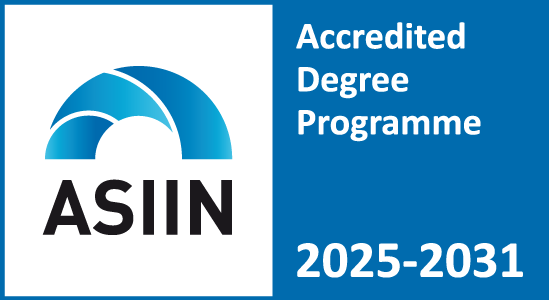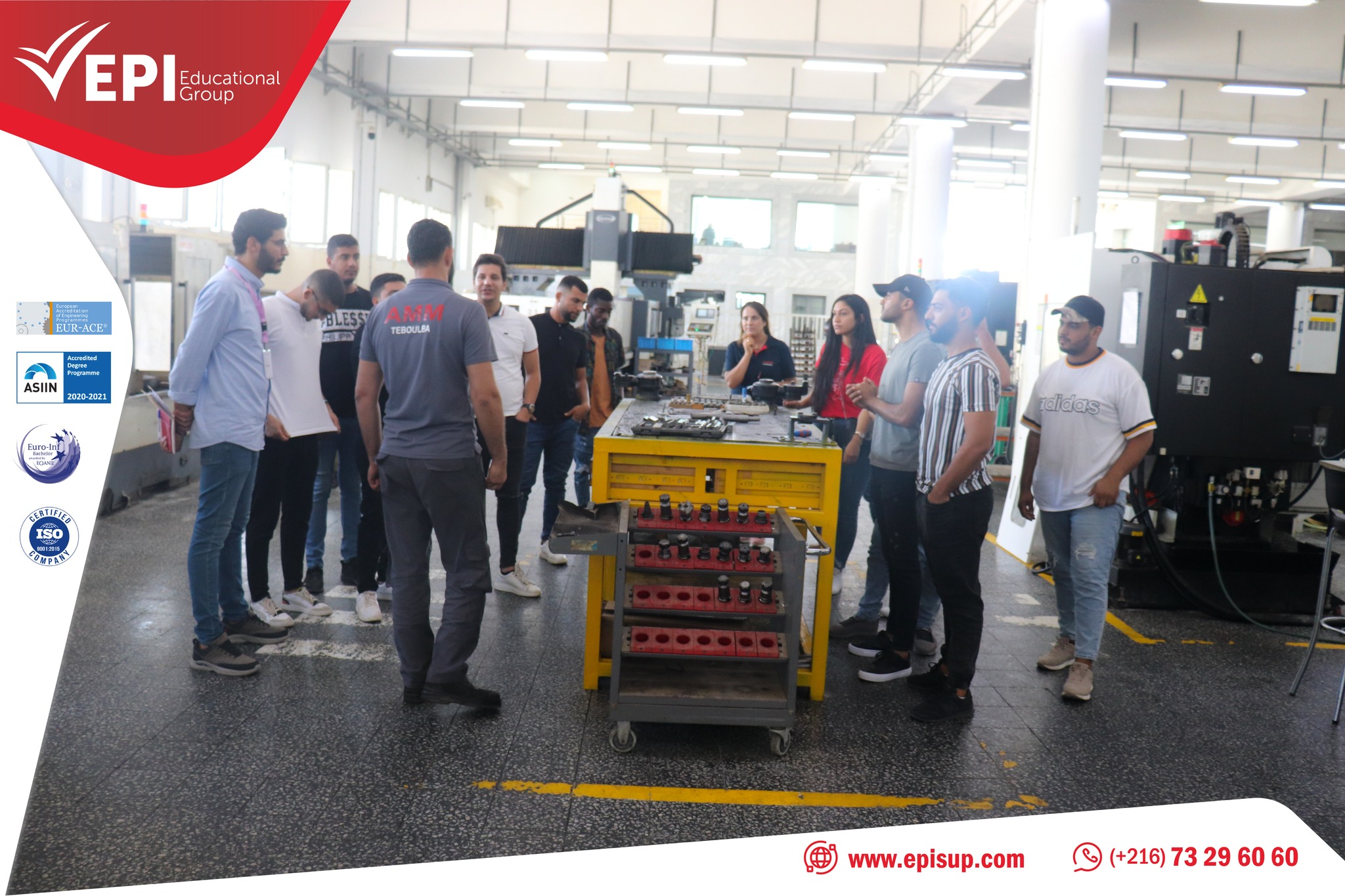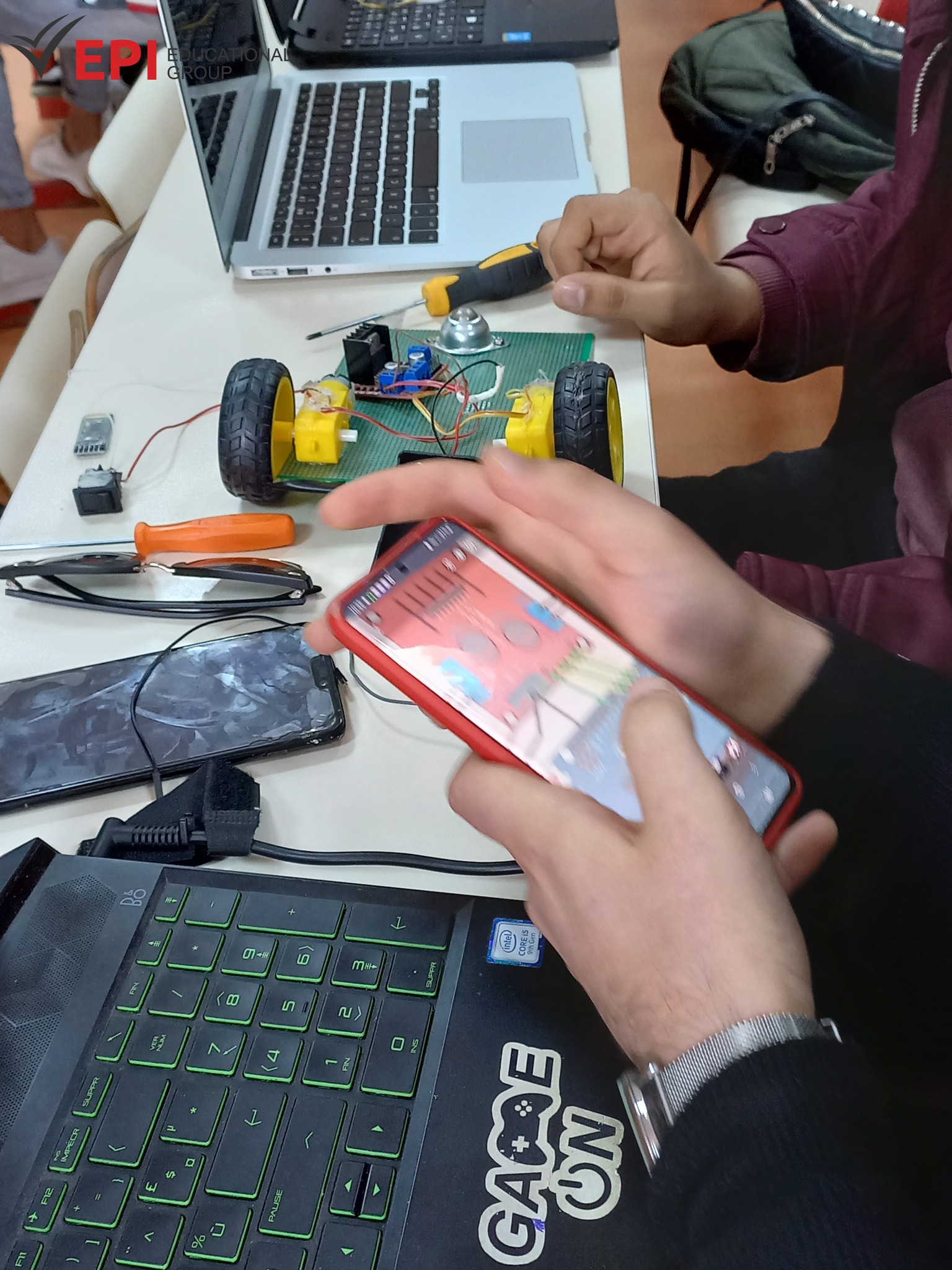This training program is accredited.


In this field, the EPI-Polytech is ambitious to form highly-qualified engineers who are able to conceive, to guide and to master the electronical modules and also systems in their material and logistic dimensions.
The formation highlights the value of the analogical electronics, which is a domain that remains present in many applications. An important part of teachings is dedicated to the digital electronics, the embarked systems, automatics, radiocommunication systems and signal treatment and image. This formation concerne the variety of activity fields like the electronics and the micro electronics, the telecommunication equipments, IT and multimedia, the mechatrinics, the automobile industry, ironwork and naval, the aeronautics, biomedical instrumentation…


Electronics engineering students have the possibility to choose between the options (dominants) as follows: Embarked systems, biomedical Instrumentation, industrial controle.
Students in Electrical Engineering have the possibility to choose between the following (Dominant) Options:
- Embedded systems
- Biomedical instrumentation
- Industrial Control
For more information, contact Mr MESSAOUD HASSANI

- French
- English
- Electrical Networks
- Electrical schematics & Installation
- Linear Systems 1
- Signal processing 1
- Discrete component electronics
- Functions for Digital Electronics
- Electrical circuits
- Computer architecture and Linux
- Mathematics for engineers
- French
- English
- Direct current machines
- Electrical installation LAB
- Linear systems 2
- Signal processing 2
- Functions & Electronic Systems
- Object Oriented Programming C++ &
- Java
- Microprocessor and microcontroller engineering
- CAD (Computer Aided Design)
- Probability & Statistics
- Numerical analysis
- French
- English
- AC machines
- power electronics 1
- industrial automation and IPA
- system analysis and control
- advanced techniques
- Programming and embedded systems engineering
- signal transmission
- sensors and actuators
- programmable circuits
- lab view
- MOS certification
- French
- English
- Power electronics 2
- VHDL synthesis and technology
- DSP : Architecture and programming
- Image processing
- Interfacing techniques
- Embedded systems for IoT 1
- Smart Sensors
- Embedded mobile development
- New technologies for process control
- Pyton programming for embedded systems
- PFA (end of year project)
- French
- English
- AC machines
- power electronics 1
- industrial automation and IPA
- system analysis and control
- advanced techniques
- Programming and embedded systems engineering
- signal transmission
- sensors and actuators
- programmable circuits
- lab view
- MOS certification
- French
- English
- Power electronics 2
- VHDL synthesis and technology
- DSP : Architecture and programming
- Image processing
- Interfacing techniques
- Embedded systems for IoT 1
- Robotics
- Control and HMI of Industrial Systems
- Modeling of electrical machines
- Smart control
- PFA (end of year project)
- French
- English
- AC machines
- power electronics 1
- industrial automation and IPA
- system analysis and control
- advanced techniques
- Programming and embedded systems engineering
- signal transmission
- sensors and actuators
- programmable circuits
- lab view
- MOS certification
- French
- English
- Power electronics 2
- VHDL synthesis and technology
- DSP : Architecture and programming
- Image processing
- Interfacing techniques
- Embedded systems for IoT 1
- Equipment maintenance 1
- Sterilization, safety and standards
- Biology
- Anatomy, Physiology and
- Neurophysiology
- PFA (end of year project)
- GRH
- Labor law
- preparation for certification in Entrepreneurship
- Embedded systems for IoT 2
- Artificial and Industrial Vision
- Embedded systems security
- VHDL : architecture and simulation
- SOC prototyping on FPGA
- ARM processors and applications
- Embedded Artificial Intelligence
- RFID: Radio Frequency Identification
- Industry 4.0
- Quality management
- End of Study Project (PFE)
- GRH
- Labor law
- preparation for certification in Entrepreneurship
- Control of electrical machines
- Design office
- Industry 4.0
- Industrial maintenance techniques
- Diagnosis and functional safety .
- Machine Learning
- Mod. and Cde des Sys. Mecha
- Production analysis and management
- Renewable Energy and Smart Grids
- quality management
- End of Study Project (PFE)
- GRH
- Labor law
- preparation for certification in
- Entrepreneurship
- Equipment maintenance 2
- Medical imaging techniques 2
- Telemedicine: E-health
- Biomedical instrumentation
- Medical Robotics
- Nucl Instrumentation .
- Qualitology and CMAO
- Industry 4.0
- Biophy . and atomic and nuclear physics
- End of Study Project (PFE)
- For more information, download:
- Module sheets

- The objectives and skills of the sector
